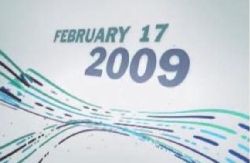DTV Transition May Be Delayed

Obama transition official John Podesta was reacting to complaints from Consumers Union, among other groups. CU had two complaints. One was that the federal program subsidizing set-top converters has run out of its allotted funding. CU also questioned the ability of FCC call centers to handle the volume of calls that will result from shutting off analog broadcasts on the currently scheduled deadline of February 17, 2009, just a month away. Two Democratic FCC commissioners, Michael Copps and Jonathan Adelstein, supported a delay.
Outgoing FCC chair Kevin Martin responded that the STB funding dilemma is not insurmountable. "There are options they can do without having to delay to get coupons flowing immediately," Martin told an interviewer at the recently concluded Consumer Electronics Show in Las Vegas. For instance, Congress could provide more funding, or eliminate the 90-day coupon expiration date.
He added that "a delay has actually the potential to confuse consumers. All of our messaging has been about February 17." That includes outreach by the FCC as well as the television networks and other interested parties.
Moreover, arrangements to dismantle the old analog transmitters are already in progress, a move that would allow stations to maximize signal for their new digital broadcasts. Delaying this work may cause the stations to incur additional and unexpected costs.
Whether Martin will hold firm on the February 17 deadline is unclear. Asked about this at CES, he said the deadline may stand if Congress appropriates more money for coupons. He agreed with Podesta's letter to the FCC that the decision is "up to Congress." In fact, it was an act of Congress that authorized the FCC to implement the DTV transition.
Martin is on his way out. President-elect Obama has named Julius Genachowski, his technology advisor, to be the new FCC chair. Genachowski worked at the FCC during the Clinton administration, was an executive at Barry Diller's IAC/InterActive Corp. for eight years, and was a classmate of Obama's at Harvard Law School. However, Martin's term doesn't expire till June, so he'll still be the guy in charge when the transition date rolls around next month.
Regardless of when it happens, the final act of the DTV transition drama will be dramatic. According to Nielsen, 6.8 percent of TV households were unprepared for the transition as of last month, or 7.8 million analog viewers. But a recent FCC field test in Wilmington, North Carolina suggested that the disruption would be minimal. When city officials flipped the switch, fewer than one percent of the city's TV households were affected. The remainder had already made arrangements to weather the transition.
Does it really matter? After all, broadcast-dependent viewers are only a small subset of the total TV audience, most of which is otherwise served by either cable, satellite, or telco. And of those antenna-oriented viewers, many have already made the transition with set-top boxes, new DTVs, or by subscribing to alternative services. The folks who are not ready for the transition are a small subset of a small subset.
There are some legitimate issues in the DTV transition. It will create winners and losers. Because DTV coverage areas differ from analog coverage areas, some viewers will have access to more stations, and some will have access to fewer. To avoid losing stations, some households will need to install new antennas, and for maximum benefit, those would have to be rooftop (or at least outdoor) antennas.
The reality is that no longer how long the transition is delayed, there will be some folks who are not ready for it. They are just sitting on their hands. Letting their screens go dark may seem callous. But that's the only thing that will finally get them to act. The Obama administration should let the DTV transition play itself out.
- Log in or register to post comments




















































